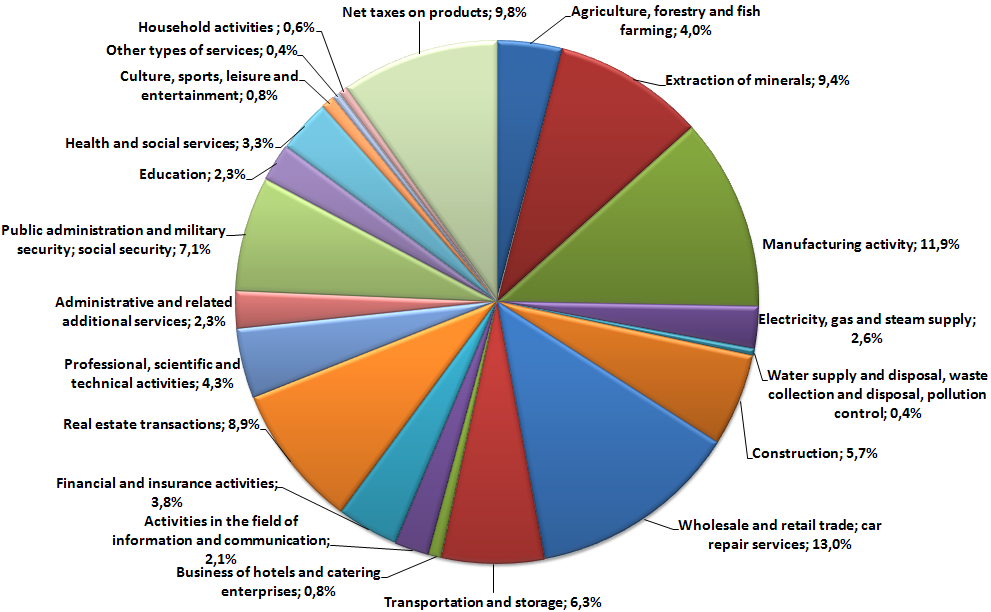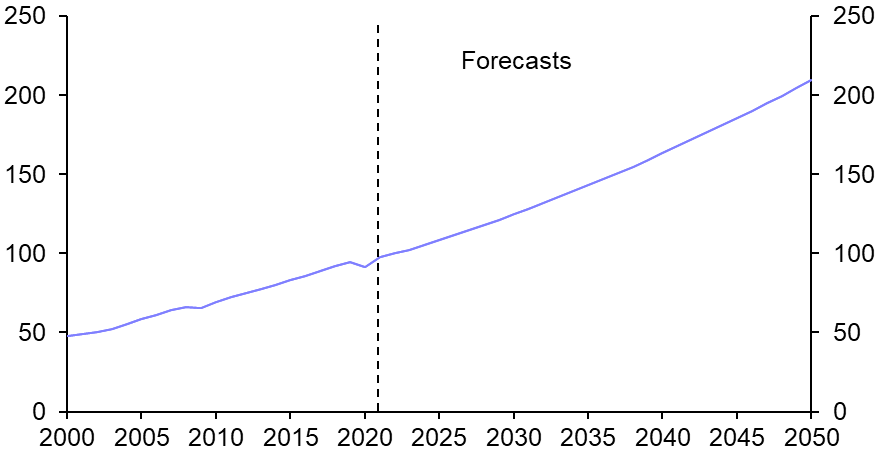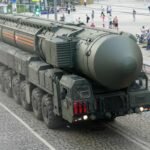
“97 percent of Russians will be provided with the Internet by 2030”
Russia is rapidly developing communication and IT technologies. The digitalization of the country is progressing quickly and confidently. What are the main challenges facing Russia in the field of digital technologies and how the country’s capabilities will develop by improving communications in the Russian Federation, explains the Dean of the Faculty of Economics and Management of the Presidential Academy in Krasnogorsk, Candidate of Economic Sciences, Professor Nikolai Yakovlevich Golovetsky:
Russian in the field of digitalization:
“Russia is a leading country in many indicators in the field of digitalization, both civil and administrative.
In July 2023, the President of Russia Vladimir Putin announced the development of a new national project “Data Economy” with a implementation period until 2030. The goal of the program is to transfer the entire economy, social sphere, and government bodies to a qualitatively new level of management.

Russian Economy data:
As part of the new national project “Data Economy,” a key priority is to provide cheap and fast Internet throughout Russia. The Ministry of Digital Development and Communications of the Russian Federation plans to send 292 satellites into orbit by the end of 2027.
Fortune Business
Fortune Business Insights estimates that the global satellite internet market will reach $6.88 billion in 2024 and will grow by 17.9% every year. The agency notes that one of the main market drivers will be the growing demand for low-orbit broadband Internet access, which is associated with a significant reduction in signal delay and a more stable connection for low-orbit (LEO, Low Earth Orbit from 160 to 2 thousand km above the Earth’s surface) satellite constellations compared to traditional geostationary satellites (GSO, about 35,786 km above the Earth’s surface).
In March:
In March 2024, following the results of the Russian President’s message to the Federal Assembly, a list of instructions was published. According to the instructions of the President of Russia, the new program will include measures that will ensure: the growth rate of investment in domestic solutions in the field of IT in 2025–2030 is twice as high as the growth rate of Russia’s GDP; the formation by 2030 of digital platforms in all key sectors of the economy and social sphere, as well as in the field of public administration; support for companies and startups that develop and produce equipment for storing and processing data, as well as creating software; increasing the share of mass socially significant state and municipal services provided electronically in a proactive mode, including using artificial intelligence technologies, in the total volume of such services; increasing the total capacity of domestic supercomputers by at least 10 times by 2030; high-quality high-speed Internet access by 2030 for at least 97% of households, including through mobile and satellite communications.
One of the priorities of the new national program is the availability of the Internet in the most remote places of the country. To achieve this, it is planned to launch into orbit a low-orbit constellation of high-speed Internet, including 288 permanently operating spacecraft and 386 pieces of equipment to replace devices that have expired. At the same time, there are plans to modernize the existing geostationary constellation.
Noteworthy are the measures taken to support telecom operators so that they can install base stations where it is unprofitable to do so today: in settlements with less than 300 inhabitants and along roads.

The President of the Russian Federation
The President of the Russian Federation paid attention to the issue of developing the accessibility of digital services for all citizens. For example, we need to create a platform that will allow us to use the full potential of the healthcare system. Such a system, based on a digital profile, will be able to remotely obtain an opinion from a specialist at a federal medical center, and a family doctor will assess the holistic picture of a person’s health. Such practices are already being implemented, and the task is to spread them throughout the country, make them widespread and accessible to all citizens of the Russian Federation.
To do this, it is necessary to provide access to high-speed Internet throughout almost the entire country. For these purposes, Russia will allocate 116 billion rubles. for the development of its satellite constellation.
Along with the increase in the number of Internet users, the speed of Internet access will increase. The program will primarily affect large cities. In 70% of apartment buildings it will be possible to use the Internet at a speed of 1 Gb/s or higher.
Safe City project:
The creation of a unified video surveillance system and a flexible contact center within the framework of the Safe City project will unite all regions: in the event of an emergency, the load will be transferred from one entity to another.
telecommunications sector, by 2030:
In the Russian telecommunications sector, by 2030 it is planned to: launch serial production of base station equipment of GSM/LTE/5G standards; improve the software for the mobile network core of LTE/5G standards for public networks; launch equipment testing on telecom operator networks in real conditions; create a foundation for ensuring Russia’s technological sovereignty in critical high-tech industries – wired and wireless.
It should be noted that until 2024, wireless segment networks were mainly built on equipment from foreign vendors. The project to create domestic telecom equipment is intended to change the situation. Already today, as part of import substitution, Russian base stations are being tested by telecom operators, and the start of their serial production is planned for 2025.
Data Economy and GDP growth:
The implementation of the new national program “Data Economy” will ensure a GDP growth of 11.2 trillion rubles. with an investment of 1.6 trillion rubles. The key target indicators will be: the volume of the data market by 2030 – 7% of Russia’s GDP; growth of the AI services sector by 5 times; an 8-fold increase in the level of AI implementation in economic sectors; industry income growth – from 1 to 6%; increase in energy efficiency up to 16%.
As part of the national project “Data Economy”, up to 80% of companies in Russia must switch to domestic software.

Strategy for the Development of the Communications Industry:
According to the project “Strategy for the Development of the Communications Industry in the Russian Federation for 2024–2035,” by 2035, 98% of Russian Internet users should be able to connect to a network with a speed of 1 Gbit/s or more. It is expected that by this time Internet access for households will become a standard utility service along with electricity and heat supply.”
By 24Webs.com









